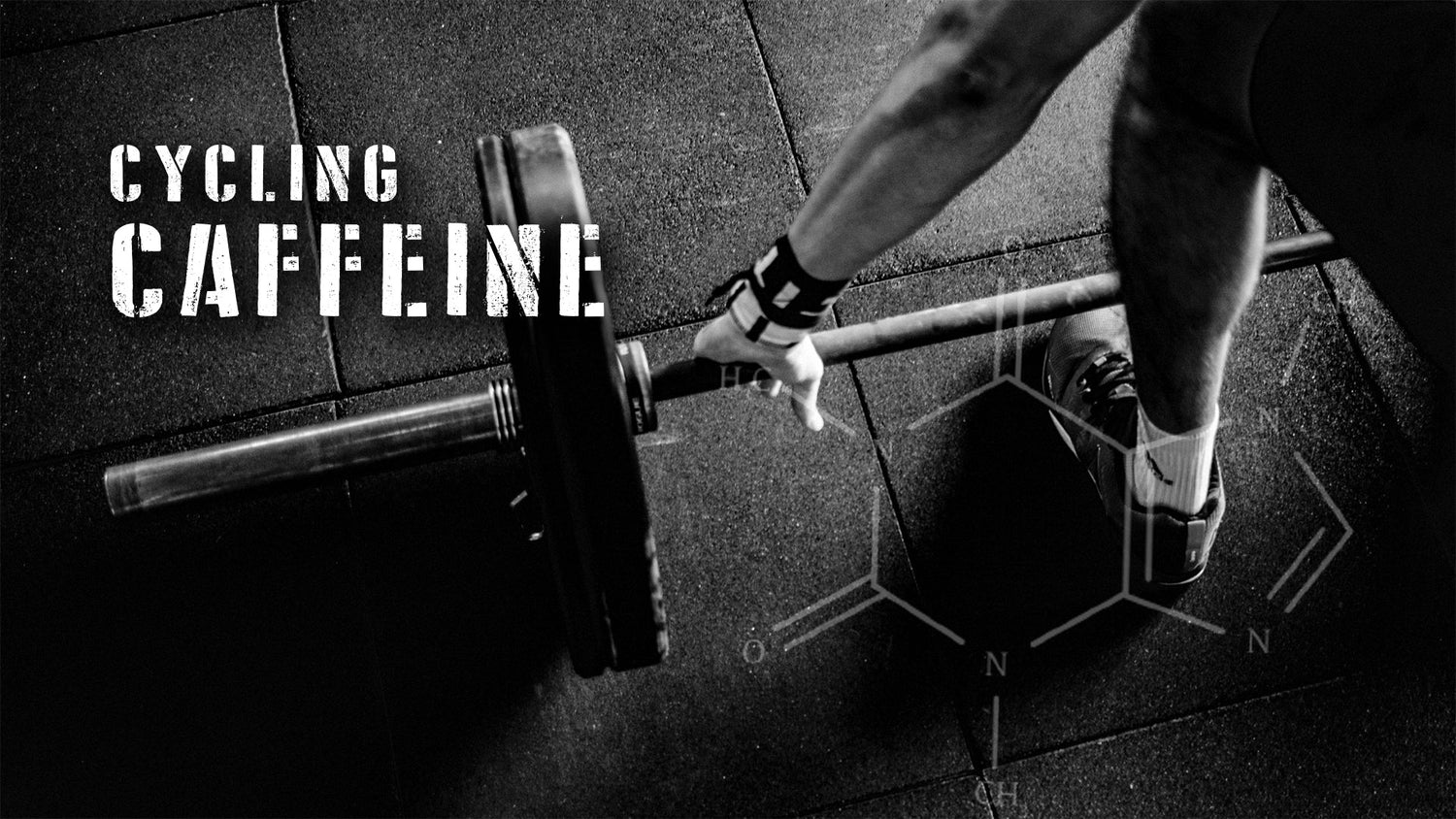Should you cycle caffeine? After all, you probably start your day with All Day You May Caffeinated, coffee, or some other beverage containing caffeine. Add to that the 5% Nutrition pre-workout you’re using, and you might take in 400 mg of caffeine right there. While caffeine is an amazing compound, it makes sense to take periodic breaks. Keep reading and find out the details!
A Closer Look At Caffeine
Technically, caffeine is a central nervous system stimulant. It’s defined as a bitter stimulant that occurs in over 60 plants. When we think of caffeine, we think of coffee or a similar beverage, and we think of pre-workouts. Caffeine is the most popular stimulant in the world. When it comes to pre-workouts, it’s usually the main stimulant.(1,2)
How Caffeine Works
First of all, caffeine's strongest effects are felt during the first hour after you consume it. Yet you can still feel some benefits up to 4 to 6 hours later. Caffeine works by blocking the effects of adenosine, which is a neurotransmitter that calms your brain and makes you feel tired. In addition, it increases levels of adrenaline, known as the fight or flight hormone. Also, caffeine increases the brain activity of the neurotransmitters norepinephrine, dopamine, and norepinephrine. The result of these hormonal neurotransmitter changes is brain and CNS stimulation, a state of alertness, and elevated focus.(3,4)
It’s important not to confuse the energy of caffeine with the energy source for your muscles. They depend on you having sufficient stores of glucose and glycogen, which is used in the production of ATP, the true energy source for muscular contractions.
What Side Effects Are Associated With Caffeine?
Caffeine is somewhat addictive, yet it has not been proven to pose any serious health risks. Even so, anyone that’s laid awake all night after drinking coffee too close to bedtime or drinking too much coffee will tell you that caffeine impacts sleep and mood. Here are some of the other frequent effects of caffeine.(4)
- Caffeine can cause you to feel restless, nervous, or irritable.
- It can temporarily increase your heart rate and raise your blood pressure.
- As noted, caffeine can cause sleep problems, from restlessness to insomnia. This is especially true if you ingest it at night. It’s also true if you ingest higher doses during the day.
- Caffeine is a diuretic. That means you’ll lose water through urination. This leads to dehydration. This means you need to make sure you’re drinking plenty of water during the day and when you work out. Another option is to add 5% Nutrition Hydrate Stk to your workout program. This exceptional product will keep you hydrated and improve your workout performance.
- Some caffeinated beverages can have additional effects. For instance, the acid in coffee can cause stomach distress.
- Finally, avoid high-sugar coffee and energy drinks. Look for low-sugar options instead.
What Is The Suggested Daily Amount Of Caffeine?
According to the Mayo Clinic, the maximum daily recommended amount of caffeine is 400 mg for most people.(5) As a point of reference, our strongest pre-workouts - 5150 and Kill It RTD - contain 400 mg. In comparison, Kill It Reloaded contains 325 mg, and Kill It provides 250 mg. In addition, All Day You May Caffeinated supplies 125 mg.
Should I Cycle Caffeine?
Since caffeine is a central nervous system stimulant, your body will develop a resistance to it. That means that, after a little time, you have to take a stronger dose to get comparable effects. Therefore, a cycling approach makes sense.
An Example Of A Caffeine Cycle
- For 4 weeks, use your choice of Kill It or Kill It Reloaded. On Leg Day, which is typically your toughest workout, use 5150 or Kill It RTD.
- Cycle off all stim-based pre-workouts for 2 weeks. Use only Full As F*ck.
- If you’re a heavy coffee drinker, try to drink 1-2 fewer cups a day on your off weeks.
- This gives your body a chance to break your tolerance and reset. When you go back to your regular 5% pre-workouts, you’ll experience fresh results.
Recap
Should you cycle caffeine? While caffeine can be a lifesaver for anyone looking for an energy kick, it makes sense to give your adrenal glands a break every so often. Not to mention, building up tolerance diminishes the effects of any pre-workout, even state-of-the-art 5% Nutrition pre-workouts. Follow the caffeine cycling guideline in this article and make the most of your 5% Nutrition pre-workouts!
References:
- Caffeine: MedlinePlus
- Caffeine Definition & Meaning - Merriam-Webster
- How Does Caffeine Affect Your Brain? (brainfacts.org)
- What are the effects of caffeine? | Health Promotion | Brown University (brown.edu)
- Caffeine: How much is too much? - Mayo Clinic













